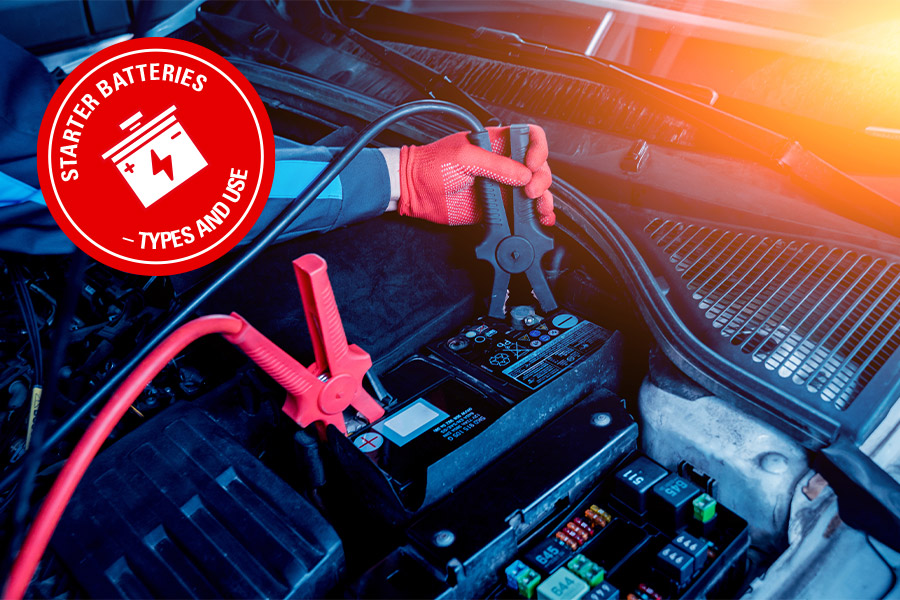When it comes to lithium, we immediately think of the lithium-ion battery, which supplies the drive system with power in millions of electric vehicles. However, lithium is also used for special applications in starter batteries.
The lithium-ion battery is characterised in particular by its high power and energy density - important traits for an energy storage system. Another benefit: Low self-discharge.
Can the lithium iron phosphate battery compete with the conventional lead-acid battery?
Specialist suppliers are also using these advantages for starter batteries: A further development of the lithium-ion battery is designed to compete with the conventional lead-acid battery. In the so-called lithium iron phosphate battery (LiFePO4), the lithium cobalt oxide cathode is replaced by a lithium iron phosphate cathode, where no oxygen is released in the chemical reaction.
This makes the technology much safer. Lithium-ion batteries, as installed in millions of smartphones or laptops, can catch fire independently in certain circumstances. Although this happens very rarely, it can still happen. You may remember the reports on smartphones catching fire. This happens when there is a short circuit in the battery, causing the battery to become extremely hot. Oxygen then acts as a reinforcing combustion material.
Areas of application motor sports, industry and hobby
Safety is an important issue for the applications using lithium iron phosphate batteries. LiFePO4 are used in motorbikes, racing cars, remote-controlled cars, as well as submarines and industrial applications.
The low weight and the smaller installation space requirements in particular are the key reasons for using lithium iron phosphate batteries. The weight of the vehicles is an important factor in terms of performance, particularly in motor sport and sporty motorbikes: The lighter the vehicle, the lower the mass the engine has to move. LiFePO4 battery suppliers offer products that are up to 25 kilograms lighter than the traditional lead-acid batteries.
Another benefit: With lithium iron phosphate batteries, more charging and discharging cycles are possible compared with the traditional lead-acid starter battery, i.e.: Their cycle stability is significantly higher.
Advantages - but also many disadvantages
On the other hand, there are some disadvantages that have so far prevented the technology from spreading outside of very specific applications. The main one is cost. Light lithium iron phosphate batteries are normally much more expensive than the starter batteries in the volume market. This means that they are quickly ruled out for normal petrol car drivers.
The modern technology also doesn't deal well with cold. If the temperature drops towards the single digits, the starting power reduces more and more. We should also address the topic of "deep discharge": If lithium-based battery cells are stored deep discharged over a longer period, the service life reduces rapidly. It is not uncommon for cell damage to occur. Until things change, LiFePO4 batteries therefore continue to only be of interest in particular specialist industries and applications.

